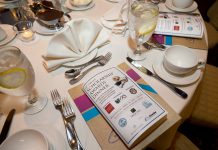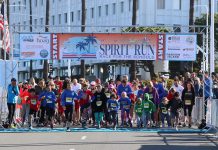By Edie Crabtree
Each year, the American Library Association designates the last week of September as “Banned Books Week” – a time to celebrate the freedom to read and the importance of the First Amendment. The annual event highlights the benefits of free and open access to information, while drawing attention to the dangers of censorship.
Banning books is something that happened in Nathaniel Hawthorne novels, right? Wrong. There are still today organizations and individuals that seek to ban or challenge books, hoping to have them removed from library shelves and school curriculums.
Well surely then, these are books that our children should be sheltered from — they must contain graphic content, or be so blatantly inappropriate that we should most definitely hide from our children their very existence, right? Wrong again. Each year, beloved authors such as Dr. Seuss, Shel Silverstein, A.A. Milne, and Webster (yes, the dictionary!) find themselves on the list of books publicly targeted by different groups and individuals.
In fact, even the book containing the list of banned books is on the list.
I was curious how local school libraries respond to these issues, so I recently spoke to Eva Polizzi, a librarian at The Pegasus School.
Pegasus observes Banned Books Week each year with several activities in the library. With the younger students, they will read a selection off the list and let them guess why the book was “banned.” A favorite of the students is “The Lorax” by Dr. Seuss, which invariably someone will guess was banned because it contains the word “stupid.” In reality, it was challenged by the logging industry, which felt that they were unfairly portrayed in Seuss’ environmental fable.
Older students will be treated to a visit from an author who has found his or her work on the list. This year, they will hear from popular children’s author Sarah Weeks (“Oggie Cooder” series, “So B. It”). They will also discuss whether the banning of books is a violation of our First Amendment rights.
The message they are trying to impart to the students is that when a book is banned, it means that no one is allowed to read it. It is one person or group attempting to curtail the rights of everyone. While the school does separate some books into age-appropriate sections (the student population ranges from pre-school through eighth grade), they keep the banned and challenged books available because they believe that parents and families should decide together is OK for their family, based on their own values rather than someone else’s.
Ms. Polizzi says, “As a society, we seem to focus on libraries as quaint, sweet places, but I think it’s important to remind our students that they contain opinions and knowledge from all over the world, from all different worldviews. Banned Books Week forces people to remember that there are constantly challenges to their right to free speech, and therefore, free reading, and it’s a right that shouldn’t be taken for granted.
“I love sharing books with the students because it opens up so many new worlds for them. Anything they could ever want to know can be found in a book. To be informed, contributing citizens of the world, we need to fight against the inclination to shelter ourselves and preserve the status quo.”
Apparently, the message is sinking in. Newport Coast resident and Pegasus 8th grader, Ellie Pietsch says, “It is important for young minds to be exposed to all dialects of literature. We should have total access to all facets of a historical event, for example, so we can form our own opinions. We should recognize that there is more than one side to a story and therefore not let others limit what we can read and hence form opinions for us.”
As for me, while there are many books on the list that I would probably not feel comfortable having my young children read, I am happy that I still have the right to make that decision based on MY moral compass, and I’m even happier that the next generation is being taught to appreciate and exercise this right, as well.





I was told at school about a book that I wasn’t allowed to read online. Just some girl in math class, who said her parents forbade it, but that a lot of people are saying things like that.
I had no idea that happened. Don’t people want us to read? Why not?
She isn’t allowed to read anything from on line, like Keeley Thomson Demon Girl, or Twilight or see the movies. Not even Harry Potter. She’s in high school already.
I hope that we all stand up against book banning and suppression, which is just as dangerous, maybe more so. It doesn’t take the government to ban a book, just someone not letting you read it.